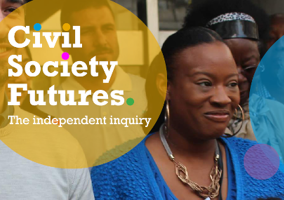The advent of a new year always represents something of a watershed, but 2019 feels particularly significant.
Brexit of course dominates the horizon, as the UK stands on the cusp of a new relationship with the rest of the world.
As we prepare to leave the EU and forge a new relationship with the rest of the world, the debate will intensify as to what sort of a country we wish to be. While it is difficult for to be heard in the current environment, charities must strive to be at the forefront of that debate and efforts to build a new future.
Depending on how thing work out, the new year may also bring economic challenges. It remains to be seen whether Brexit can be negotiated smoothly, but it would not be a surprise if charities were to find themselves operating in a much more constrained environment, with fundraising, statutory income and investment returns all hit.
Adaptability
However, the charity sector has demonstrated repeatedly over the decades that it gains strength through adversity. From world wars to the rise of the welfare state, charities have adapted to changing conditions and new challenges.
With this in mind, I was struck by a comment in Julia Unwin’s Civil Society Futures report from a member of the Voluntary Organisations Disability Group: “[We need a] new punk era”.
While I don’t think the comment means we should all cultivate spiky hair and put safety pins through our noses (though that option is available for those who wish to), perhaps there are a few things the sector could draw inspiration from.
When the punk movement went overground in 1976/77, the government had lost its majority in parliament and was being forced to negotiate with smaller parties. Sound familiar? Meanwhile, Britain was suffering economically, with inflation in double digits and unemployment rising.
In response, the punk movement arose as a productive outlet for frustrated young people. A simpler musical approach fostered a DIY ethos, with “getting involved” more important than virtuoso musicianship.
There was also a fearless willingness to experiment - despite punk having a reputation for playing basic three-chord thrash, the participatory ethos brought plenty of innovation, most notably with the Clash and the Slits’ reggae fusions, and the post-punks' boundary-pushing artistic and political statements.
Meanwhile a whole infrastructure sprang up outside of the major label establishment, with self-produced fanzines and a co-operative, independent record distribution network (“The Cartel”) oiling the wheels of a new economy.
Resurgence of mutual aid
At the same time, charities were also making the best of challenging conditions. An INTRAC paper by Olga Savage and Brian Pratt records how by this point, the limitations of universal state provision were being debated, presenting an opportunity.
“Self-help and mutual aid re-emerged as concepts in community development, particularly in response to issues such as urban decay and racial tension.
“As a result, public expectation led to increased funding for community organisations and consumer groups.”
I don’t profess to know how things will pan out for the charity sector this time around. But as we move into 2019, perhaps the conditions are ripe for another evolution, not only in music but in the vital contribution that the charity sector makes to the UK.
Gareth Jones is editor of Charity Finance
Related articles










